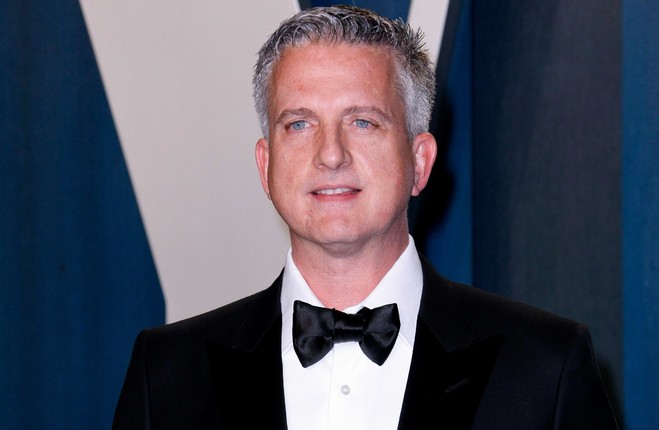GIVEN THE SPACE on the Venn diagram at which sports media and economics intersect is usually a sad and gloomy place, last week brought some unexpected news to spruce up the whole area, as Spotify bought sports and culture site The Ringer along with its podcast network for almost $200 million.
This signalled Spotify’s intention to move into podcasting and totally vindicates its founder Bill Simmons and all who decided to work for him following his high-profile uncoupling from ESPN.
If you’re unaware: The Ringer was founded by Simmons in 2016, after he left ESPN in a dispute that bubbled up over comments he made about NFL Commissioner Roger Goodell amid the New England Patriots’ DeflateGate scandal. When Simmons left, his legendary, longform journalism site Grantland – an adjunct to ESPN – was ended shortly after, and many of that site’s writers followed Simmons to The Ringer.
One of those who joined Simmons in his new venture was Bryan Curtis, who is now the site’s Editor-at-Large and host of The Press Box podcast. He was this week’s guest on Behind The Lines, our sportswriting podcast exclusive to members of The42.
“It was so much fun, which is why I always had in the back of my mind that it would end. Work shouldn’t be this fun!”, Curtis told us of his days at Grantland.
“For those of us lucky enough to be there, it was largely an invitation to write what you want and write it how you want it; to go out and find the story you want to do, and do it. It’s almost hard to define beyond that.”
That said, with great freedom comes great… fear.
“All of us writers, when we can’t do something – when we don’t have the skills to do it or didn’t put the time into it – the first thing we do is blame somebody else. We blame our editor, our subject, our spouse: we blame anybody else as we are so thin-skinned.
“That took all of that away, you didn’t have that cover. You couldn’t complain that the editors didn’t give you enough time or didn’t put you on that extra flight, because most of the time, they did. So you had this terrifying confrontation every day: ‘Oh my God, I’m going to be as good as my talent today. It’s more terrifying than anything I’ve encountered before!”
Curtis was in hospital following the birth of his daughter when he learned of Grantland’s demise, getting the dreaded text message that reads “Check your email.”
Happily, once Curtis’ contract with ESPN ran down, Simmons called.
“When he called me he was still figuring out what he’d do, he said, ‘I don’t know exactly what it’s going to be, but I’m going to do something. I just said ‘I’m in. I don’t know what it is, but I’m in.’ I’ve always trusted him and he has always been good to be.”
So, how have things worked out so well at the Ringer?
“One of the big things I’ve enjoyed about working with Bill is that I’m allowed to be myself. I’m allowed to be the best version of myself that I’m allowed to be. Shockingly, that isn’t always the case in media.
“And that’s not always being weird or obscure or constantly diving down rabbit holes, but that feeling is the best feeling in journalism, and I’ve been lucky to have it.
At its heart it is the people that work here. Some of us came from Grantland but it’s a new team. There is also a totally different spirit to it. At Grantland we were an appendage of ESPN, and sometimes that’s a good thing, from the expense accounts on down. At the same time, you’re part of a giant media death star and if something happens in the NBA that night, the highlights will be all over SportsCentre and there will be an article on it on the front page of ESPN.com, no matter what we do. At The Ringer there is a totally different ethos. If something happens in the NBA, we have to do it. On the one hand that requires more work, but on the other, there’s something interesting in the fact that you are your own website, and your future depends on what you do and the decisions you make every day.
“Podcasting too, it’s not just text. The Ringer is diving into other worlds more than we ever did at Grantland.”
So, as an entire industry grapples with an uncertain future that is fast becoming an uncomfortable present, can The Ringer’s success be replicated elsewhere?
Curtis isn’t so sure.
“It’s a great question and one I heard with Grantland. When is there going to Australian, UK, Irish Grantland? That was a model that seemed to me to be replicable everywhere else, at least in terms of content. There are great sportswriters and great stories everywhere. Why wouldn’t that happen?
“The answer is money. Who is going to do that and put that together? I would hope so, but I’m so shaken by the economics of our industry right now, but I just don’t know.”
Listen to the full interview with Bryan on Behind The Lines. To gain access to the podcast feed – and plenty more besides – subscribe at members.the42.ie.
Highlights from the series’ first 12 episodes are available for free at this link.
The42 Podcasts / SoundCloud

